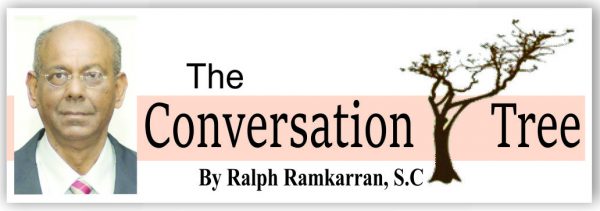
The High Court refused to do so because Todd had no knowledge of the fraud and was, therefore, a purchaser for value without notice. Had she been in collusion with Jeboo, the High Court could have set aside the sale and rescind the transport on the ground of fraud if the case was brought within a year of the discovery of the fraud.
The Court of Appeal reversed the High Court on several grounds, which are not relevant to this story, but the Caribbean Court of Justice, on 25th February, 2021, reversed the decision of the Court of Appeal and restored that of the High Court. The only consolation for the Price family was that Jeboo, the forger, had been imprisoned for three years. They lost the property. In his judgment Justice Wit suggested that there is need for a review and reform of the appropriate laws.
The nature of the forgery perpetrated by Jeboo raised its head about thirty years ago. Criminals discovered that there were a large number of properties, land alone or land and buildings, occupied and unoccupied, the latter untended, whose owners were living abroad. These properties became easy pickings if the owners’ names can be forged on powers of attorneys giving the forger the power to sell the properties. Many such properties were sold and owners defrauded. Another scam involved the application by neighbours and others for a declaration of ownership by way of prescriptive title of the properties, particularly vacant land, of persons who had migrated. All they needed to prove was twelve years undisturbed and adverse possession. This they can do by merely saying it in evidence.
I have learnt in the course of my job over many decades that Guyanese overseas are intensely attached to properties they own in Guyana, or inherit, or are likely to inherit. Almost to a person they possess a fierce ambition to retain or acquire ownership of properties, even in cases where the value is meaningless to them, or there is no sentimental attachment. Except for sentimental reasons, I have been unable to discover the reasons behind the drive to hold property of comparable little value as against earnings and standards of living of the persons abroad. It’s an inexplicable phenomenon. No warnings of the dangers of fraud are usually heeded.
As it became increasingly prevalent, my law firm and some other reputable lawyers began to decline accepting legal work which involved the conveyance of a property by a power of attorney on behalf of the purchaser, except in circumstances where there is clearly no fraud, such as where the purchaser and attorney are personally known. Not all lawyers took a stand against the use of powers of attorney, so that the criminal forgers were still able to continue their trade. Unqualified persons also practice law and a few lawyers would sign the conveyancing documents for a split of the fee. But as the crime grew worse, it became better known. Nevertheless, it persists to this day and new forms of fraud in relation to properties emerged. One variant involved the forgery of owners’ signatures on powers of attorney giving the forger power to mortgage the property. The forgers would then obtain loans from lending institutions amounting to millions, then disappear, until the lending institutions ceased granting of mortgages by way of powers of attorney.
Reform of the law to prevent this type of fraud in which many people have lost their homes which they took lifetimes of effort to acquire, and banks have lost millions, have been clearly overdue for decades. Hopefully the comment of the CCJ would inspire the Attorney General to take urgent steps to eliminate this fraud.
The public looks to proposals that will end the forgeries of powers of attorney by statutorily imposing on notaries public the requirement for production of proof of identity by parties to a power of attorney and record keeping requirements, including copies of identity documents. Failure to maintain these records should constitute criminal offences and withdrawal of the appointments as notaries public. The Deeds Registry now requires copies of identity documents of the persons giving the power of attorney. This requirement should be made into a law.
The Attorney General may also wish to consider imposing specific requirements on purchasers of properties from persons holding powers of attorney. These may include a signed affidavit in statutory form sent directly to the purchaser or his/her lawyer confirming the sale and the conditions thereof or some other confirmatory requirement to be filed in the Deeds Registry along with the conveyancing documents by the purchaser or his/her lawyer. There might be other ideas, but urgency is now required.





